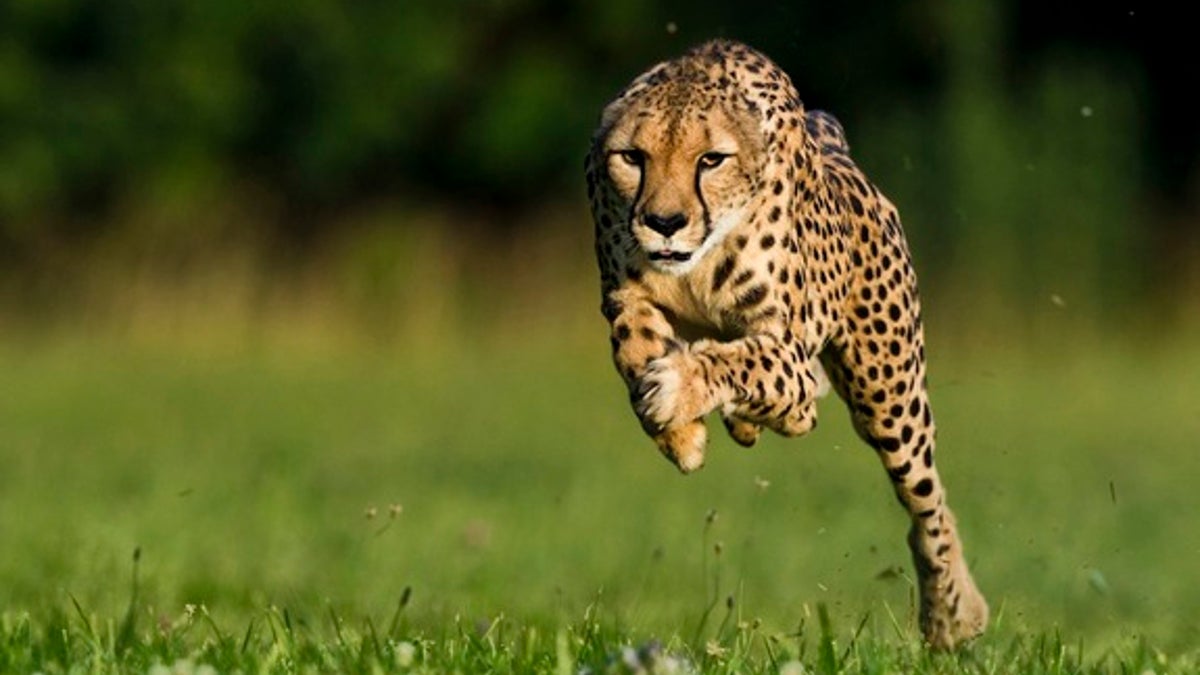
June 20, 2012: An 11-year-old cheetah named Sarah broke a world record by running 100 meters in 5.95 seconds. (Ken Geiger/National Geographic Magazine)
The fastest cheetah on Earth has done it again, breaking her previous world record for the 100-meter dash and setting a new best time of 5.95 seconds.
This feat surpasses the fastest of all human 100-meter sprinters by almost four seconds. Usain Bolt, a Jamaican sprinter now competing at the 2012 London Olympics, holds the human world record at 9.58 seconds in the 100-meter dash.
Cheetahs, of course, are built to run faster than humans, regularly clocking speeds of up to around 60 miles per hour (96.5 kilometers per hour). During a photo shoot with National Geographic Magazine, a cheetah from the Cincinnati Zoo named Sarah covered 100 meters at 61 mph (98 kph).
The sprint broke Sarah's previous world record, set in 2009 when she ran the same distance in 6.13 seconds. That sprint broke the previous record set in 2001, when a male South African cheetah named Nyana ran 100 meters in 6.19 seconds.
Sarah is 11 years old and is part of the zoo's Cat Ambassador Program. Her sprint was documented with funding from the National Geographic's cat conservation effort the Big Cats Initiative.
The record-breaking run took place on a course designed by the Road Running Technical Council of USA Track & Field. Sarah chased a fluffy toy lure around the course, breaking the record on her very first run.
The secret to cheetah speed is in its long, flexible spine, which allows the animal to cover up to 22 feet (6.7 meters) on every stride. Cheetahs also vary their strides per second as they speed up, taking more strides per second as they run faster. That seems to be a special talent, researchers reported in June in the Journal of Experimental Biology. Other speedy creatures such as greyhounds keep a steady number of strides per second no matter how fast they run.
Cheetahs' sharp claws also act like cleats when they run, giving the big cats traction.
Cheetahs are endangered in the wild, with an estimated 9,000 to 12,000 living outside of zoos today.
Copyright 2012 LiveScience, a TechMediaNetwork company. All rights reserved. This material may not be published, broadcast, rewritten or redistributed.








































